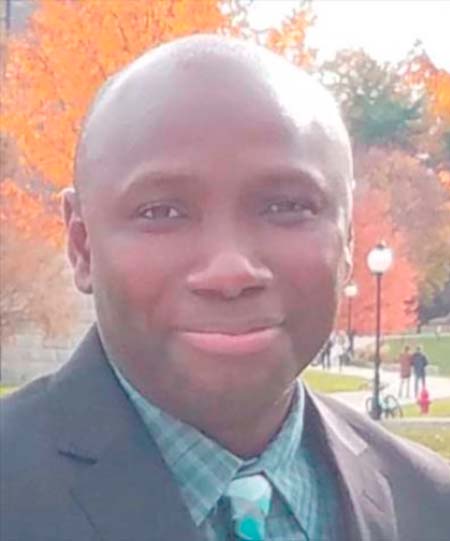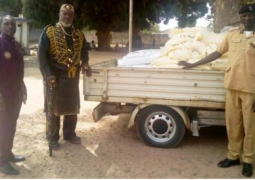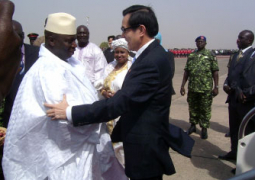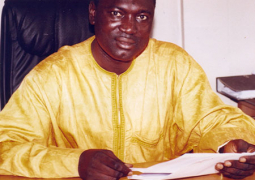
How
does one understand the strength of a nation? Is it through the amount of money
a country has? Can one measure a nation’s might by the size of its military? Or
is strength determined according to the amount of natural resources a country
possesses? Answering the afore-mentioned questions is important because each
question highlights a perspective that is significant to the perceived image of
a nation. With answers, countries can enter into dialogues with their citizens
about how to create dynamic societies that will improve the quality of life for
each citizen in order to position such a country favorably among other nations.
In
2015, during a conversation with a trader in Mumbai, India, I was enlightened
about the manner in which different people perceived themselves in comparison
to others. The above trader described his view of India as follows:
We
are very rich. America has a lot of resources, computers, and money. But each
time I see America on television, someone is always getting shot, and it makes
me afraid to visit there. But in India, we do not have to worry about our
security because our government makes it possible for all of us to feel safe.
Although people outside of India assume that we are poor, I promise you that we
are not. We are wealthy in so many ways. Our cultural institutions reflect our
values and belief system. Young people from India are among the most productive
in the world. Just think about it. The CEOs of Pepsi and Microsoft, two of the
most valuable companies in the world, are India. Therefore, we have a lot to be
thankful for. If you want to do something in India, believe me, the
opportunities are available to ensure your success. India may not have as much
money as America. However, I feel safe knowing that I can leave my house and
family in the morning, guaranteed to return home in the evening. That is what
makes us rich and proud.
In
a separate conversation in 2016, a waiter at a restaurant in Dusseldorf,
Germany, expressed a similar concern about his perception of what made Germany
great and why he worried about life in the United States.
Here
in Germany, it is illegal to carry a gun. The only people who are allowed to
carry a gun are the police and the military. However, each time I watched the
news about America, I see people getting shot by ordinary civilians. We,
Germans, like our peace and we get along with one another well. If you have a dispute
with someone, you find a way to solve that problem legally. But the idea that
people can just reach into their pocket, take out a gun and shoot you? That is
crazy. If I may ask: How do America get guns so easily? It makes me very afraid
to go there. My fiancée and I talked about going to New York for our honeymoon.
But we decided against it because we did not want to get shot. That is the
reason why I did not think about going to America. I simply did not want to get
killed.
The
two individuals mentioned above were ordinary people living normal lives in
their respective countries. Although they were from different parts of the
world, they each expressed a deep sense of love and pride about their homeland.
Based on my conversations with them, I got a sense that both men valued safety,
security, and prosperity. In my view, safety, security, and prosperity are
interlocking values that must be present in a functional democracy. Absent any
of the three values, the quality of human life becomes devalued. Thus, I would
like readers to think about the following questions while reading the rest of
this article: What will “The New Gambia” look like five years from now? Is it
going to be prosperous? Are Gambians going to stay and work at home or are more
people going to try the so-called “backway?”
OVERCOMING
OBSTACLES
My
view is that amid uncertainty, there is opportunity. The Gambia is currently
witnessing its third representative government since independence. Like any new
democracy, the nation has a lot to learn both from its past and from
established democracies. The healthcare sector, education, youth services, the
national economy, and cultural institutions all need to work seamlessly in
order to improve the nation’s standing. To make the above enhancements, transformative
leadership will be required. The new government must address the following two
deficits in order to change the quality of life of a majority of Gambians.
1. Alleviate Poverty:
One
of the immediate priorities of the government is to address poverty. Many in
The Gambia live on approximately $1.25 a day according to estimates by the
United Nations. Whether that estimate is accurate or not is beside the point.
What matters is the impoverished reality that many Gambians are currently faced
with. In 2009, the Bureau of Statistics in partnership with the United Nations
Development Programme (UNDP) published a report about poverty in The Gambia. In
their report, many Gambians revealed that they kept their children home because
of an inability to pay for school fees. If the rate of illiteracy in The Gambia
is not reversed, Gambians will continue to experience apathy rather than
prosperity. In a previous article, I posed the following question, “Can
education change society?” I continue to believe that education is essential to
overcoming obstacles that impede national development and social challenges. As
a civil society, it is important to employ every available tool to improve the
standard of education across the country. A dynamic workforce must be educated
so as to meet the challenges of our increasingly competitive global economy.
2. Gender Equality:
According
to the UNDP, between 2010 and 2015, there were 115.8 adolescent females between
the ages of 15 – 19 who gave birth in The Gambia out of every one thousand
births. The above numbers are a cause for national dialogue on improving the
quality of life for adolescent women in the country. The world has moved far
beyond the days when women were homemakers while men became bread winners.
Rather than keeping girls home, efforts should be made to keep them in school
and in the workforce. UNDP data suggested that 48.9% of Gambians ages
twenty-five and older had at least some secondary education from 2005 – 2014.
Out of that group, only 17.4% were women compared to the 31.5% male population.
With a predominantly male educated society, no wonder that even parliament only
had 9.4% of seats occupied by women in 2014. Consequently, workforce
participation is uneven at 72.2% women and 82.9% men in 2013. Ironically, more
women would prefer to work and earn income if they had the opportunity to do
so.
I
continue to believe in The Gambia and its prospects of a better future. While
it is not expected that all of the issues facing the nation be resolved right
away, it is important to consider factors that have long been responsible for
the degradation of lifestyles across the country. A deep understanding of
social issues from an objective perspective is keen to addressing the concerns
of citizens at home and abroad.
REFERENCES:
Susso,
S. P. (2017, February 13). Can education change society? The Point Newspaper.
Retrieved
on February 23, 2017 from
http://thepoint.gm/africa/gambia/article/can-education-changes-society
The
Gambia Bureau of Statistics, The Gambia 2013 Population and Housing Census
Preliminary
Results.
(2013). Retrieved on February 21, 2017 from
file:///C:/Users/Sankung78/Downloads/The%20Gambia%20Population%20and%20Housing%20Census%202013%20Provisional%20Report.pdf
The
Gambia Bureau of Statistics and United Nations Development Programme – The
Gambia,
Poverty
and Social Impact Analysis Report. (2009). Retrieved on February 21, 2017 from
file:///C:/Users/Sankung78/Downloads/POVERTY%20and%20SOCIAL%20IMAPCT%20ANALYSIS%20REPORT.pdf
United
Nations Development Programme, Human Development Reports. (2015). 2015
statistical
annex
tables. Retrieved on February 21, 2017 from
http://hdr.undp.org/en/content/human-development-index-hdi
Author:
Sankung Papa Susso is a Professor of Education at Touro College and University,
System, Email: Sankung78@yahoo.com
Read Other Articles In Article (Archive)




